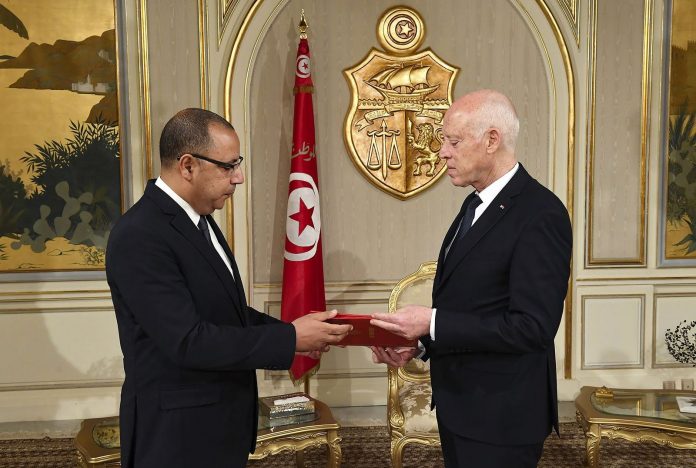Previously, President Kais Saied named former Interior Minister Hichem Mechichi as the country’s prime minister.
The Tunisian Parliament voted in confidence to endorse a technocratic government, aiming to bring an end to months of political turmoil and concentrate on solving the deteriorating economic and social difficulties.
There were 134 votes in favor, and 67 against the establishment of the coalition.
The debate, which began on Tuesday, took place in the midst of a battle for power between the president and the main parties.
“Government formation comes at a time of political instability and people’s patience has reached its limit,” Prime Minister-designate Hichem Mechichi told Parliament as the debate commenced.
“Our goal will be to resolve the economic and social crisis … to avoid the leakage of public funds, to start talks with lenders and to start reform projects, including public corporations and subsidies,” he stated.
He said the new government will concentrate on “social and economic problems and answer to the urgent needs of Tunisians.”
“The dream of a new Tunisia that guarantees freedom, dignity, and fairness has turned into disillusionment, deception, and despair, and has pushed some Tunisians into boats of death,” he said, referring to young people setting out for Europe seeking a better life.
“The basics of a decent life, such as the roads, the water to drink, the school teacher, and the doctor in the hospital, are not yet assured,” Mechichi said.
Mechichi, no longer the perfect candidate
Under the government’s efforts to boost the economy, Mechichi combined the finance, investment, and economy ministries into one department managed by liberal economist Ali Kooli, Chief Executive Officer of the Arab Banking Corporation (ABC Bank) in Tunisia.
While President Kais Saied suggested Mechichi as Prime Minister, Tunisian politicians state that he has since withdrawn his support, underlining the possibility for friction between the presidency and the government.
Officials from the parties said that Saied had invited them to vote against the Mechichi government and try to proceed with the caretaker government.
Tunisia is the sole Arab nation to have maintained a stable transition to democracy after the Arab Spring revolutions that spread throughout the world in 2011.
Yet the economy has been crippled by high debt and poor public services, exacerbated by the global coronavirus pandemic, and a year of political instability has hampered attempts to fix these issues.
Tunisia’s tourism-dependent economy declined by 21,6% in the second quarter of 2020 relative to the same time last year owing to the coronavirus outbreak.
Mechichi’s attempt to form a regime is the third since the October parliamentary election after the cabinet dismissed one new cabinet in January and the second government resigned in July after fewer than 5 months in power.
While previous cycles of political instability in Tunisia focused on the conflict between secularists and Islamists or on economic policies, current tensions seem to be more entrenched in the separation of power between the president and the parliament.
Saied, a liberal independent who won the presidential election in a vote last year, said he needed to reform the political system.
Source: TRT WORLD

